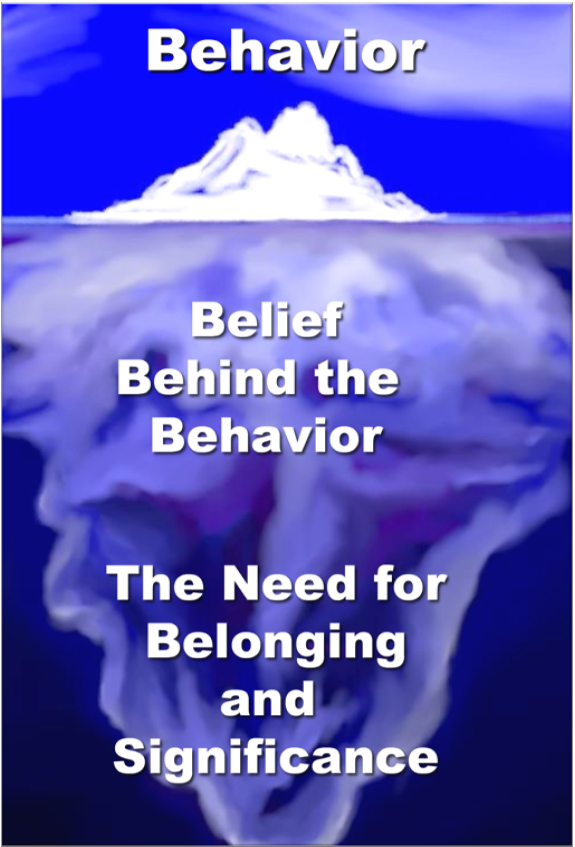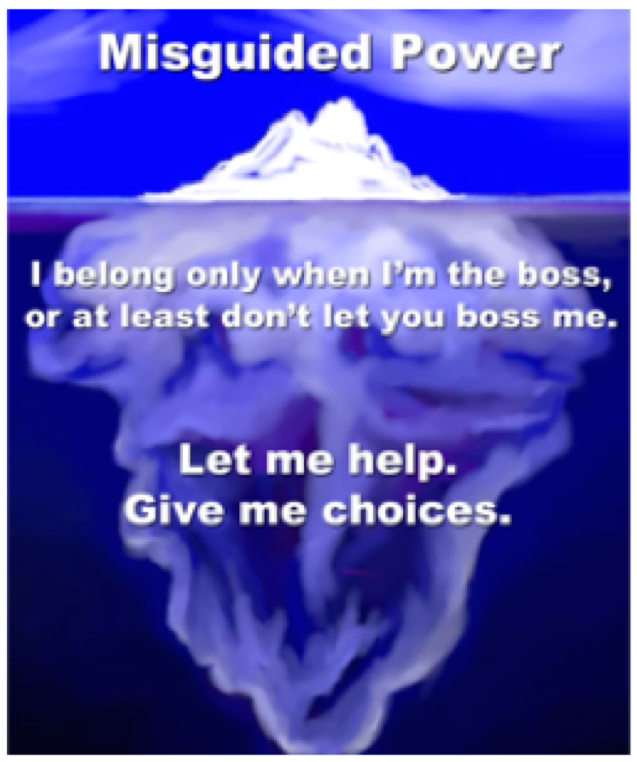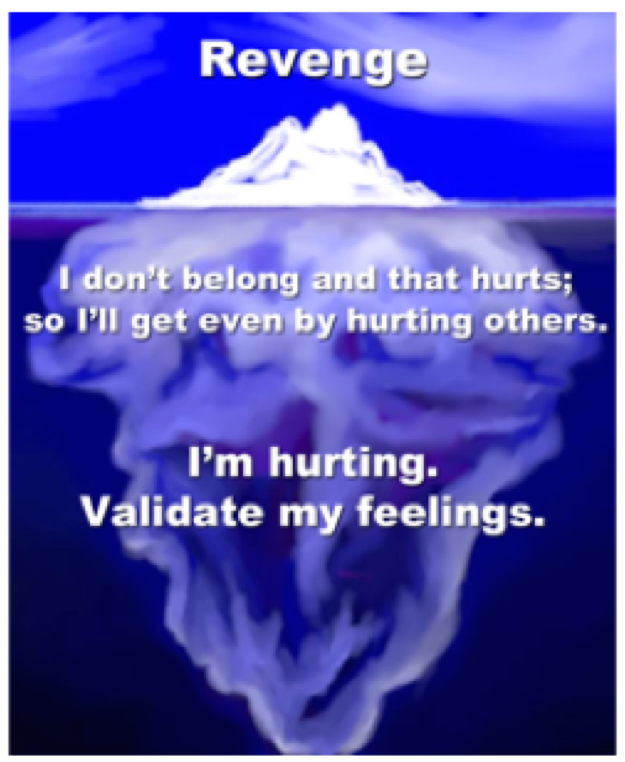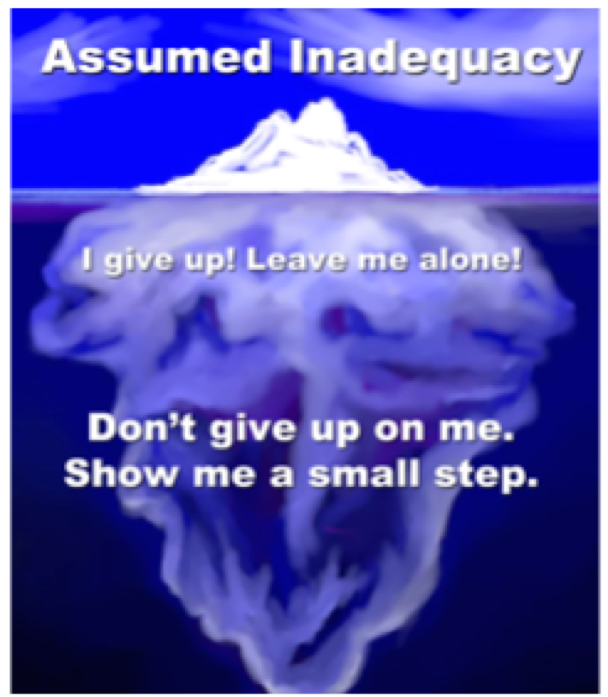Question
What are the four goals of misbehavior?
Answer
It is really important for us to understand more about the iceberg and the purpose and goal of misbehavior. Figure 1 shows an iceberg analogy. Dreikurs and Adler pointed out that children make decisions based on their perceptions or their private logic from a very early age. First in the family, and then in their very first school experiences, they are sizing up do I belong, and am I significant in meaningful ways? They are making decisions that are centered on this need to belong and feel significant. When children feel safe and connected, they feel a sense of belonging and significance.
Figure 1. The iceberg analogy, from www.positivediscipline.com.
On the other hand, when they do not, you often see challenging behaviors at the tip of the iceberg. We want children to thrive. When children do not feel a sense of belonging, they adopt survival behaviors or misbehaviors, what we see as the tip of the iceberg challenging behavior. These behaviors are based on mistaken ideas about how to find belonging and significance. Dreikurs called these mistaken goals because they are mistaken ways to find belonging and significance, or get adults' attention. Dreikurs identified four goals of misbehavior: undue attention, misguided power, revenge, and assumed inadequacy.
Dreikurs' Four Goals of Misbehavior
What really helped me in my first school experience after my master's program and before I had young children was to focus on my adult feeling when there was a challenge with a young one. When I was in the classroom and there was a challenging moment, thinking back on exactly what my feeling was helped me understand the purpose or the goal of the behavior.
Undue Attention
When it is about undue attention, usually the adult feeling is irritation or annoyance. I often experienced this as a mother with young children. The moment I would get on the telephone, they would come and pull at my skirt or need my attention. It is that feeling of being interrupted and feeling like they need to be reminded again and again. If we use rewards and punishment and we chip away at that, or we even do our adult tendency of reminding, it is going to keep happening and that tip of the iceberg is going to get worse. This is because what is underneath the surface of the water is the mistaken belief that I belong when you pay constant attention to me and give me special service.
Figure 2 shows the child's coded message, which helps know which tool to use is, "Notice me, involve me usefully." What I have found as a parent and educator is when I have that feeling in a challenging moment of irritation or annoyance, I pretend the child is literally wearing a ball cap that says, "Notice me, involve me usefully." We find a job to do together, we connect, and we shift from that challenging behavior to building a life skill.
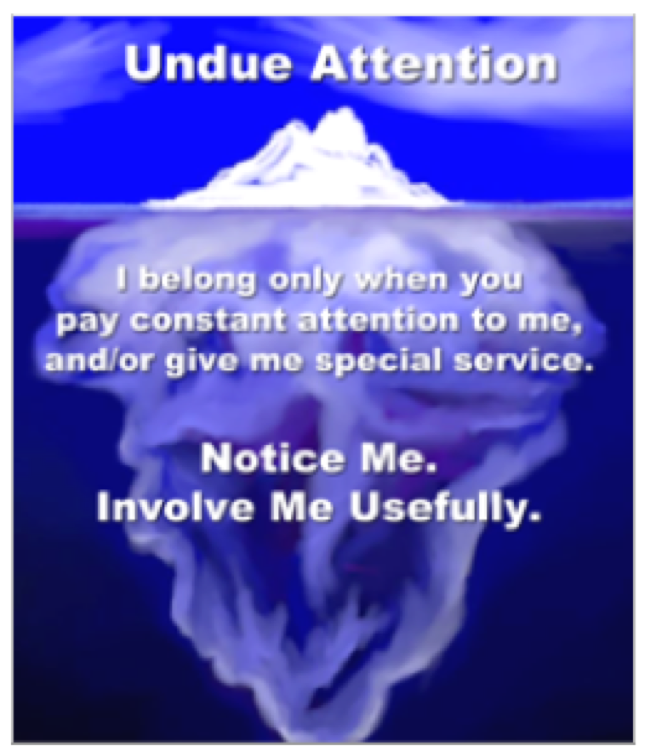
Figure 2. Undue attention, from www.positivediscipline.com.
Misguided Power
The next goal is misguided power. Usually, when this is the purpose of the behavior the adults feel that sense of, "I have got to show him or her they cannot do this," or that you want to draw a line in the sand. Again, just chipping away at the tip of the iceberg is going to make it worse. If you do, you are going to develop a pattern of getting into a power struggle with that child because the child's mistaken belief is, "I belong only when I am the boss or at least do not let you boss me."
The coded message as seen in figure 3 is, "Let me help. Give me choices." When I feel that moment of challenge, I pretend the child has on the ball cap or the T-shirt that has the coded message on it. Some young children tend to need to have more power, so we want to give them personal, positive feelings of capability. It is helpful to give them more choices, within limits, because we are firm and kind at the same time. For example, "Would you like oatmeal or a granola bar? "Would you like to start with the blocks or do you want to go pick up the books?" Anytime we can provide choices and let them help, the more that tip of the iceberg will melt underneath the water's surface.
Figure 3. Misguided power, from www.positivediscipline.com.
Revenge
The third goal of misbehavior is revenge. As seen in figure 4, the mistaken belief of revenge is, "I do not belong and that hurts, so I will get even by hurting others." The adult feeling is usually disbelief or hurt. The coded message is, "I am hurting. Validate my feelings." As an adult, when we feel hurt, our first instinct is often to give empathy. When the child is in a revenge cycle, or hurting, they are so fragile. They need their feelings validated, and again, they need connection before correction, which is the key fundamental of positive discipline. They need connection to fill that sense of belonging because when belonging goes up, stress goes down. They need empathy. We need to do some repair before we can move on to discipline for teaching.
Figure 4. Revenge, from www.positivediscipline.com.
Assumed Inadequacy
The final goal of misbehavior is assumed inadequacy. In very young children, sometimes we see avoidance, whether it is the avoidance of going into the circle or of getting in line. The mistaken belief as seen in figure 5 is, "I give up! Leave me alone!"
This is very rare in an early childhood setting, but sometimes if young children have learning disabilities that are not yet diagnosed or speech issues that have not been addressed, they can become very discouraged and want to give up. The coded message on the cap is, "Do not give up on me. Show me small steps." Breaking things down, using encouragement, and focusing on the direction of growth moving forward will help these children.
Figure 5. Assumed inadequacy, from www.positivediscipline.com.
